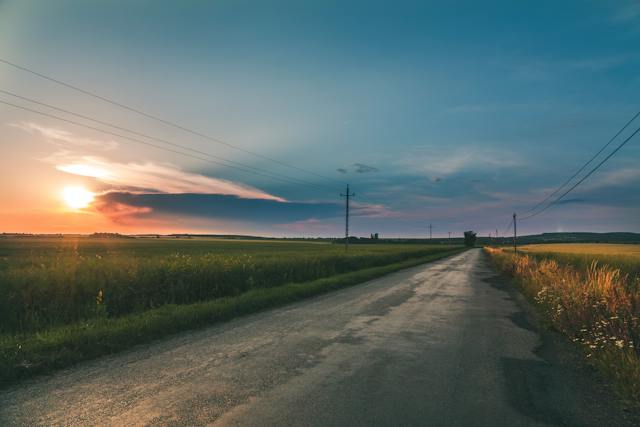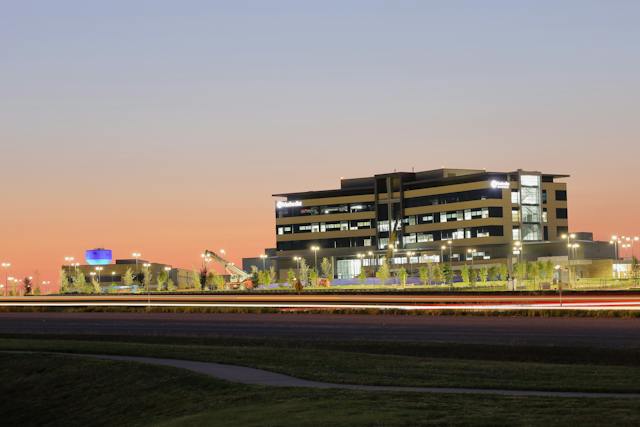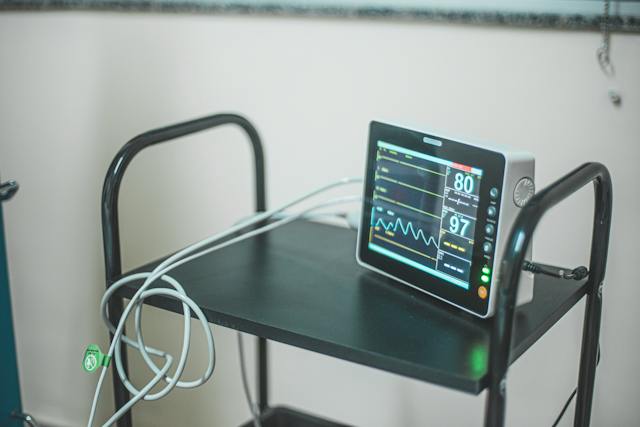In the vast landscapes of rural America, healthcare professionals embark on a unique journey, transforming lives one countryside clinic at a time. This article delves into the challenges and triumphs of those who choose to practice in a rural setting, exploring the impact they have on rural health, the communities they serve, and their own professional fulfillment.
The Allure of Rural Healthcare: The Rich Tapestry of Rural Life
Living and Working in a Rural Setting
Healthcare professionals who choose the path of rural healthcare embrace a lifestyle that extends beyond the confines of a typical medical practice. Living and working in a rural setting is not just a professional choice; it's a commitment to becoming an integral part of the community fabric. The allure lies in the simplicity, authenticity, and close-knit relationships that characterize rural life.
In a rural setting, healthcare providers often find themselves immersed in a different rhythm of life. The tranquility of the countryside, the scenic landscapes, and the sense of community foster an environment conducive to holistic healing. Practicing in a rural area becomes more than a career; it becomes a way of life, where the boundaries between personal and professional spheres blur, creating a unique and fulfilling experience.

Rural Residents: A Wonderful Asset
The heart of rural healthcare beats in harmony with the wonderful asset of rural residents. These individuals, often overlooked in larger healthcare narratives, play a crucial role in shaping the landscape of rural life. Healthcare professionals recognize that the true richness of rural life lies in the resilience, spirit, and authenticity of the people they serve.
Rural residents become partners in the journey of healthcare providers, sharing their stories, challenges, and triumphs. The strong sense of community and the interdependence among residents create a supportive environment for healthcare professionals. As healthcare providers become woven into the fabric of rural life, they come to appreciate the warmth and generosity of the individuals who call these areas home.
Embracing Rural Life: Healthcare Beyond Urban Boundaries
For healthcare professionals, working in a rural setting means becoming an integral part of the rich tapestry of rural life. It involves understanding the nuances of rural and urban disparities and tailoring healthcare services to meet the unique needs of each community.
Healthcare providers in rural areas play a vital role in the overall well-being of rural residents, contributing not only to physical health but also to the social fabric of these communities.
The Challenges of Rural Practice
Practicing in a rural setting comes with its own set of challenges. Rural healthcare facilities often grapple with financial challenges, and healthcare professionals find themselves navigating a landscape where resources may be limited. Despite these obstacles, the impact of their work is felt far beyond the walls of clinics and hospitals.

Distance is another basic challenge. Rural health clinics and other facilities may be many miles apart or quite distant from the patient's residence. This creates obvious difficulties and delays in treatment for both people who need treatment and the professionals who often staff more than one location.
Bridging Gaps in Healthcare Access
Nurturing Healthcare Hubs in Rural Communities
Bridging gaps in healthcare access requires the establishment and nurturing of healthcare hubs within rural communities. Healthcare providers in rural areas play a pivotal role in creating and sustaining these hubs, ensuring that healthcare services are not just accessible but tailored to the unique needs of the community.
The emphasis on community health becomes paramount in this context. Healthcare professionals collaborate with local organizations, community leaders, and residents to develop strategies that address the specific health needs of the population. By integrating healthcare services into the community fabric, providers become catalysts for positive health outcomes in rural America.
Overcoming Challenges: Advocating for Access to Care
The challenges of healthcare access in rural communities are multifaceted, from geographical barriers to limited resources. Healthcare professionals in rural settings become advocates, tirelessly working to overcome these challenges. By leveraging their understanding of the local landscape and forging partnerships with regional and national healthcare organizations, they contribute to the development of sustainable solutions.

The Rural Health Information Hub (RHIhub) recognizes the importance of healthcare access in rural communities and provides valuable resources to support healthcare professionals in their advocacy efforts. By addressing access barriers head-on, healthcare providers in rural areas become champions for equitable healthcare, ensuring that every individual, regardless of their location, has the right to quality and timely medical services.
Enhancing Healthcare Access in Rural America
One of the primary goals of healthcare professionals in rural America is to bridge the gap in healthcare access. With many rural residents facing obstacles to healthcare services, these providers become crucial advocates for improved access, working to ensure that no one is left behind.
The National Rural Health Association recognizes the importance of healthcare facilities in rural areas, emphasizing the need for a robust healthcare workforce. This emphasis underscores the critical role of healthcare professionals in rural settings.
Financial Challenges: The Economic Realities of Practice in a Rural Setting
The financial landscape of rural healthcare adds a layer of complexity to the already demanding profession. Healthcare professionals working in rural settings must navigate a terrain where financial challenges are prevalent and where the sustainability of healthcare facilities is often in question.
Practicing in rural areas requires a keen understanding of the economic realities that healthcare facilities face. Many rural hospitals and clinics operate with limited financial resources, making it challenging to invest in state-of-the-art equipment, attract top-tier talent, or expand service offerings. Healthcare providers in rural settings become adept at doing more with less, finding innovative solutions to deliver quality care within constrained budgets.
The Impact on Healthcare Professionals
The financial challenges in rural health also have a direct impact on healthcare professionals themselves. Rural healthcare providers may face lower salaries compared to their urban counterparts, reflecting the economic conditions of the communities they serve. Despite these challenges, many healthcare professionals are drawn to rural practice by the intrinsic rewards and the opportunity to make a meaningful impact on the health and well-being of underserved populations.
Navigating Financial Constraints for Improved Health Outcomes
Overcoming financial challenges in rural health requires a multifaceted approach. Healthcare professionals collaborate with policymakers, community leaders, and healthcare organizations to advocate for increased funding and support. The Office of Rural Health Policy recognizes the importance of addressing financial constraints and provides resources to assist healthcare facilities in navigating these challenges effectively.
Understanding and addressing financial challenges in rural health is crucial for the sustainability of healthcare facilities and the well-being of the communities they serve. Healthcare professionals in rural settings, driven by a commitment to their communities, play a pivotal role in finding solutions that ensure equitable access to quality healthcare despite financial constraints.

Overcoming Barriers to Health Care in Rural America
Physicians in rural areas are at the forefront of overcoming barriers that rural residents face. Limited access to healthcare services often leads to disparities in health outcomes. However, healthcare professionals in rural areas work tirelessly to address these challenges, advocating for the needs of their communities.
Opportunities and Rewards in Rural Communities
Rural Health: A Calling for Compassion
Rural healthcare goes beyond routine medical practices; it's a calling for healthcare professionals to bring compassion to areas where it's often in short supply. The challenges of rural areas, such as limited healthcare access and facilities, make the work of healthcare providers in these regions indispensable.
Healthcare professionals who live in rural communities understand the unique needs and dynamics, establishing a profound connection with their patients. They become more than just healthcare providers; they become pillars of support in the communities they serve.
Opportunities in Rural Healthcare Facilities: A Diverse Landscape
While challenges exist, there are numerous opportunities in rural healthcare. Many rural hospitals and clinics provide a variety of jobs in rural and underserved areas, offering a diverse range of experiences for healthcare professionals. The Federal Office of Rural Health Policy recognizes the importance of recruitment and retention in these areas, fostering networks like the National Rural Recruitment and Retention Network.
Healthcare professionals find that working in a rural setting opens doors to unique opportunities for professional growth and fulfillment. The healthcare industry in rural America is dynamic, and professionals in this setting play a pivotal role in shaping its future.
The Rewards of Rural Healthcare Practice
Despite the challenges, the rewards of rural healthcare practice are immense. Healthcare providers witness the direct impact of their work on the health and well-being of the communities they serve. The sense of fulfillment derived from making a difference in the lives of rural Americans is a powerful motivator for those working in rural healthcare.
In conclusion, the journey of rural healthcare providers is a testament to their dedication, resilience, and commitment to changing lives in rural America. Working in a rural setting is not just a job; it's a calling that requires a deep understanding of the challenges and rewards that come with it.
______________________________________________________________________
Key Takeaways
Rural Healthcare: Vital for communities in rural areas, addressing challenges and providing essential services.
Healthcare Access: A significant focus for healthcare professionals, bridging gaps and advocating for improved access to services in rural America.
Rural Life Integration: Becoming part of the rural tapestry, understanding and contributing to the unique dynamics of each community.
As we explore the unique journey of rural healthcare providers, it becomes evident that their impact goes beyond medical care. It extends to the heart of rural communities, changing lives and fostering a healthier future for all.